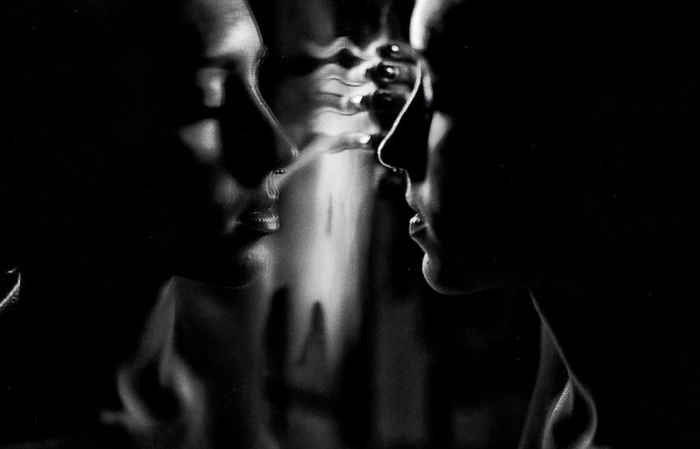“Has anyone ever talked to you about having a personality disorder?”
These were the words that came from my first ever psychiatrist appointment in the United States.
We were 35 minutes into the 50-minute appointment, and this was the first time we had ever met. Based on a couple of questions in minutes, I was almost diagnosed with a personality disorder.
Am I going back to this psychiatrist? The answer is yes.
Once I thought about the question he posed and knew within myself that I did not have a personality disorder, I agreed to look into it based upon his recommendation but was sure I didn’t have one.
He then said something perhaps only one other doctor has said before, “You are the only one who knows your body. You know best.” He was right: a 50-minute consult could never overshadow 40 years of being in my own mind and body.
A little background first, as you may be asking, why was I seeing a psychiatrist for the first time anyway?
Two years ago, I was diagnosed by my doctor and therapist in Australia with Premenstrual Dysphoric Disorder (PMDD), which basically meant I am bipolar for one week every month. That is the best way I can describe how I feel from my standpoint.
The medical description, as stated in Mayo Clinic is, “PMDD is a severe form of premenstrual syndrome that includes physical and behavioural symptoms that usually resolve with the onset of menstruation.”
It took 25 years of medical visits, psychologists, Chinese medicine, Ayurveda medicine, and good old soul searching, amongst other things, to answer my monthly franticness to find this out. Why did it take so long?
Mainly because PMDD is only known since 1987 and just coming out of the stigmatic limelight. Although it is becoming more common in the United States, there is still a lot the medical professionals have to learn about it—as do I.
Compounded with stress, I had just moved from Australia in January 2021 to the U.S. I wasn’t able to see my family or friends before I left due to state border closures. I had to leave my husband and cat behind for three months before they could be with me. I started a new job in a new industry, in a new city, in a new country, which brought on another level of stress itself.
Coinciding with an unexpected culture shock, the realisation that I would have to start from scratch career-wise, and not to forget the pandemic itself, my PMDD manifested into three weeks a month of anxiety and depression instead of the one I was used to.
Treatment for PMDD comes in many forms, and you have to find the right fit for you.
For me, when I am in a bad place, I need to accept that I require the help of antidepressants. Some women take this just before the luteal phase, which is one week before their period, and some women take it for a couple of months until they feel well again, which in turn comes in waves, and some stay on it long-term.
There is no one-size-fits-all for PMDD, nor any forms of mental health. We are the only ones who know our bodies and minds, and so we are the only ones who can choose what works best for us—of course, with the guidance of professional help. But one 50-minute psychiatric appointment certainly cannot.
After the appointment, I started to look up personality disorders, and I was surprised how many traits I could relate to or had experienced throughout my life (antisocial, avoidant, borderline, dependent, histrionic, narcissistic, obsessive-compulsive, paranoid, schizoid, and other schizotypal personality disorders).
Anyone who has experienced any form of trauma in their lifetime could (possibly) relate to some of the descriptions within these clusters. We just need to read through some of the most helpful articles on Elephant Journal to feel that way.
Does that mean we all have a personality disorder?
I do not think so, but I am not a professional psychologist, doctor, or psychiatrist to make that call. Do I have or have had some traits as suggested in the descriptions of borderline and histrionic personality, and am I in a high category of the risk factors of environmental, cultural, social factors, and family history? Absolutely.
Does this mean after 50 minutes of knowing me, I can be diagnosed with a personality disorder? Absolutely not.
It’s like googling a headache and coming up with cancer as a result. Every ache and pain we google leads us toward a form of cancer in one way or another—we can not rely on that data alone.
So, what a 50-minute consult cannot tell us is what we already know to be true about ourselves.
Look within, sit in the discomfort of a potential diagnosis, and if the prognosis fits with you, then seek help. Talk to friends, ask your family, or call a helpline—there is help if you need it.
May is the month of mental health awareness, and if you are having suicidal thoughts or feelings of deep sadness or just not feeling yourself, there are some resources below.
Remember, it’s okay not to be okay.
~
1-800-273-8255 (1-800-273-TALK) – National Suicide Prevention Lifeline
1-800-784-2433 (1-800-SUICIDE) – National Hopeline Network
1-866-488-7386 (1-866-4.U.TREVOR aimed at gay and questioning youth)












Read 4 comments and reply